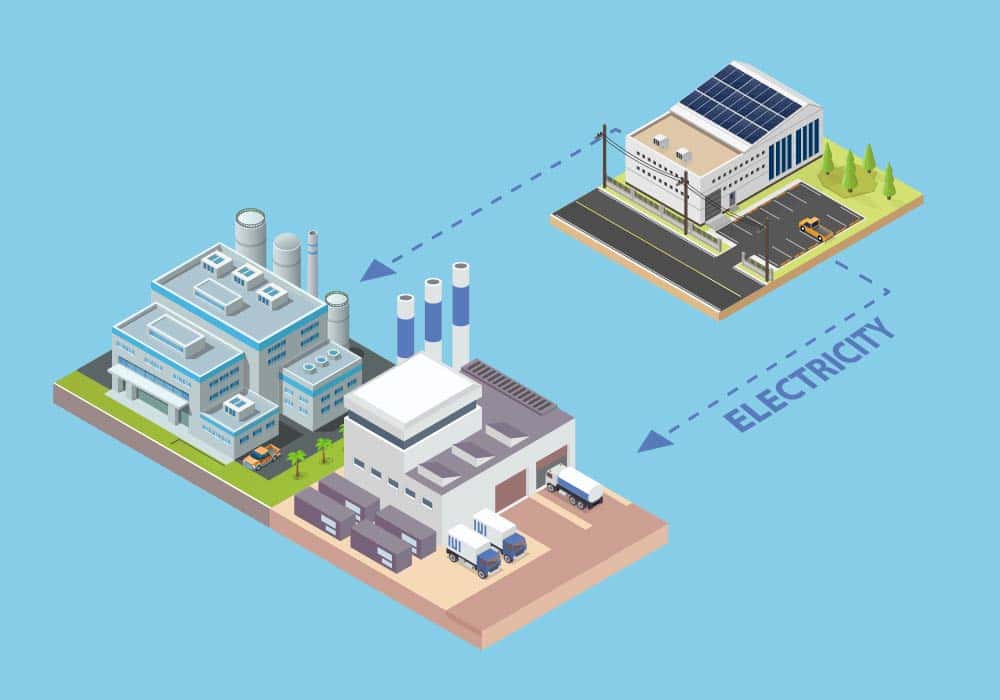An Introduction to Malaysia's Corporate Renewable Energy Supply Scheme (CRESS)
Last updated: 4 Sept 2025
Discover how Malaysia's Corporate Renewable Energy Supply Scheme (CRESS) empowers businesses to access green electricity directly, promoting sustainability and operational efficiency.
As Malaysia accelerates its transition toward renewable energy, businesses now have a new opportunity to source clean electricity through the Corporate Renewable Energy Supply Scheme (CRESS). This initiative allows corporate consumers to procure green energy directly from Renewable Energy Developers (REDs) via the national grid.
Starting 1 March 2025, CRESS will expand beyond companies seeking additional or new power supply to include all existing commercial and industrial (C&I) consumers, opening up greater accessibility to sustainable energy solutions.
In this article, we'll explore how CRESS works, its eligibility criteria, benefits, and its impact on Malaysia's corporate energy landscape.

Understanding CRESS
The Corporate Renewable Energy Supply Scheme (CRESS) is an initiative introduced to enable corporate consumers to purchase renewable energy directly from independent green power producers under a Third-Party Access (TPA) model.
This means businesses can source clean electricity directly from Renewable Energy Developers (REDs), ensuring a stable and sustainable energy supply while reducing reliance on conventional fossil fuels.
How Does CRESS Work? Understanding the Key Players
CRESS operates through a structured framework involving multiple stakeholders:
1. Green Consumers (GC)
- Local businesses from the commercial and industrial sectors
- Can procure renewable energy from multiple REDs
- Allowed to consume energy from TNB when renewable energy is unavailable
2. Renewable Energy Developers (REDs)
- Responsible for generating clean energy and supplying it to Green Consumers
- Must pay a system access charge to the Single Buyer
3. Market & System Operators
- Single Buyer (SB) – Manages electricity procurement, dispatch coordination, and access charge billing for REDs
- Grid System Operator (GSO) – Ensures grid reliability and stability for energy supplied under CRESS
4. Tenaga Nasional Berhad (TNB)
- Delivers electricity to corporate consumers
- Handles meter readings and billing for CRESS participants
5. Suruhanjaya Tenaga (ST) – The Energy Commission
- Regulates the CRESS framework and oversees approvals for CRESS applications
Benefits of CRESS
CRESS operates through a structured framework involving multiple stakeholders:
1. Direct Access to Renewable Energy
With CRESS, businesses gain greater control over their energy sources, ensuring that their operations are powered by sustainable, clean energy
2. Cost Stability & Energy Savings
By sourcing power from Renewable Energy Developers, companies can lock in long-term electricity pricing, protecting against tariff fluctuations and reducing overall energy costs.
3. Ownership of Renewable Energy Certificates (RECs)
Although Renewable Energy Developers initially own the green attributes (such as Renewable Energy Certificates (RECs)), these can be transferred to businesses. This helps companies with sustainability reporting and ESG compliance.
4. Regulatory Support & Transparency
CRESS is regulated by Suruhanjaya Tenaga (Energy Commission), ensuring a structured and transparent framework that businesses can trust.
Eligibility
Businesses looking to participate in CRESS must meet the following criteria:
- Be a local Green Consumer from the commercial or industrial sectors
- Existing TNB customers or businesses seeking additional or new electricity supply
- Connected to the Medium Voltage (MV) or High Voltage (HV) grid
Previously, CRESS was limited to businesses requiring additional power supply, but from 1 March 2025 onwards, the programme will be open to all corporate consumers, including existing buildings such as:
- Industrial facilities
- Office buildings
- Shopping malls
- Data centres
This means companies can now leverage solar farms and other renewable energy sources without needing new infrastructure investments.
CRESS System Access Charges & Tariffs
In a briefing held in August 2024, the Energy Commission of Malaysia announced the CRESS system access charges as follows:
- 25 sen per kWh – For firm electricity supply (e.g., solar farms with battery storage)
- 45 sen per kWh – For non-firm electricity supply (more variable and intermittent power sources)
These charges ensure a fair and stable market for corporate consumers and renewable energy developers under the CRESS framework.
Conclusion
The Corporate Renewable Energy Supply Scheme (CRESS) is a game-changer for businesses looking to switch to sustainable energy solutions. With its direct procurement model, cost-saving potential, and ESG benefits, CRESS enables companies to future-proof their energy supply while contributing to Malaysia’s renewable energy goals.
Want to explore how your business can benefit from CRESS? Get in touch with buySolar today and let us help you navigate Malaysia’s renewable energy landscape.
